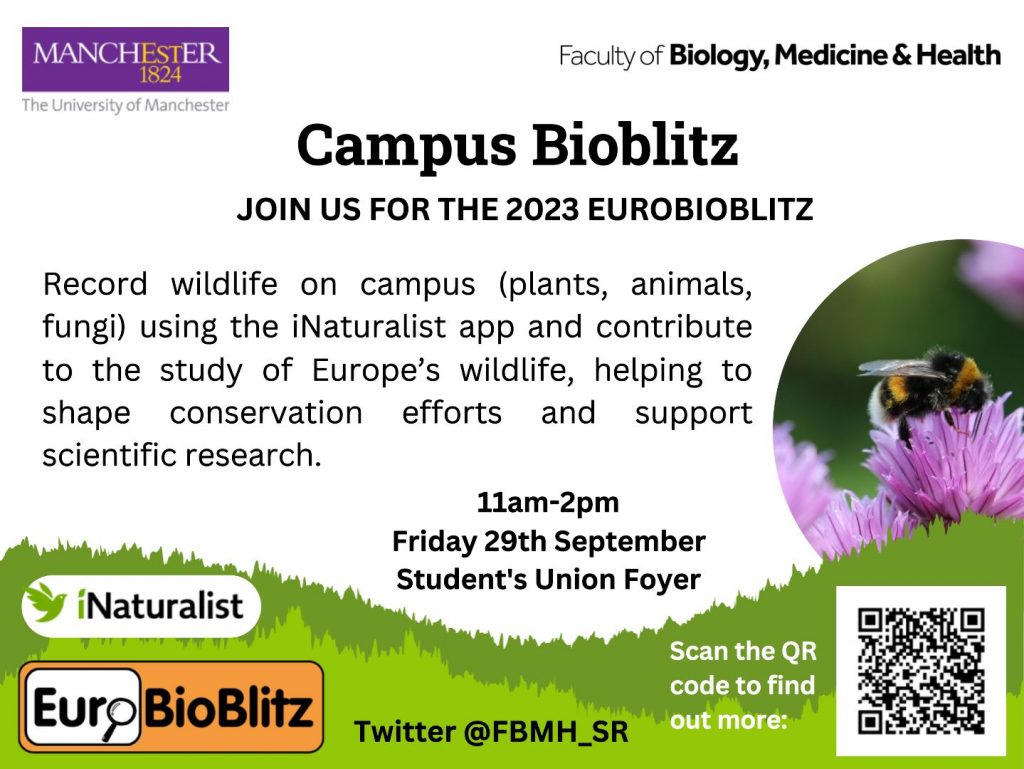
FBMH Takes Part in Europe’s Largest Wildlife Survey
On the 29th September, students and staff from the Faculty of Biology, Medicine and Health took part in EuroBioBlitz on campus, an annual wildlife recording event that takes place across the whole of Europe.
EuroBioBlitz allows anyone to contribute to the study of Europe’s wildlife, helping to shape conservation efforts and support scientific research across the continent.
To document wildlife, EuroBioBlitz participants use iNaturalist, a free app which allows you to upload photos of the wildlife you see around you. The app uses clever image classification models to help you identify your species, so can be used by anyone. Any sightings uploaded to the app are verified by other users and experts, forming part of a global database that can be used by scientists to inform the conservation of species.
Throughout the day, participants photographed species on campus, whether plant, animal or fungi. Despite being surrounded by the hustle and bustle of urban city life, it may surprise you that our campus green spaces, such as Brunswick Park, University Green, and the Michael Smith Quad, host a surprising number of species.
Despite being our first EuroBioBlitz event, it was a great success. In just a few hours, we recorded 85 species and made over 100 observations across campus. Aside from familiar faces like magpies and pigeons, we also recorded some lesser-known species, such as long tailed tits, bee orchids and speckled wood butterflies. Why not visit our campus project on iNaturalist to see some of our finds.
Throughout Europe, almost 10,000 people took part, recording over 8000 unique species. Take a look at some of the incredible observations participants have made on the EuroBioBlitz page.
Whilst important in contributing to the EuroBioBlitz, understanding wildlife on campus is valuable for our University too. By understanding what species live here and what don’t, we can work to improve campus green spaces and infrastructure to better support biodiversity. This could include initiatives such as No Mow May, an annual campaign to allow lawns to grow freely for a month. The main aim for No Mow May is to provide a much-needed boost for wild plants and wildlife throughout summer.
While this year’s EuroBioBlitz is over, we encourage you to use iNaturalist to help contribute to campus biodiversity records all year round. Just photograph and upload any of your observations to the app and they will automatically be uploaded to our campus project. There is a high chance you could record a species on campus for the first time!
To stay updated on latest wildlife events and find about all the latest finds, why not join our iNaturalist project, Biodiversity on Campus.
To find out more about Environmental Sustainability: visit the Faculty’s intranet page, website or contact srbmh@manchester.ac.uk. For more information on Environmental Sustainability at the University watch this short film or visit their website.

0 Comments